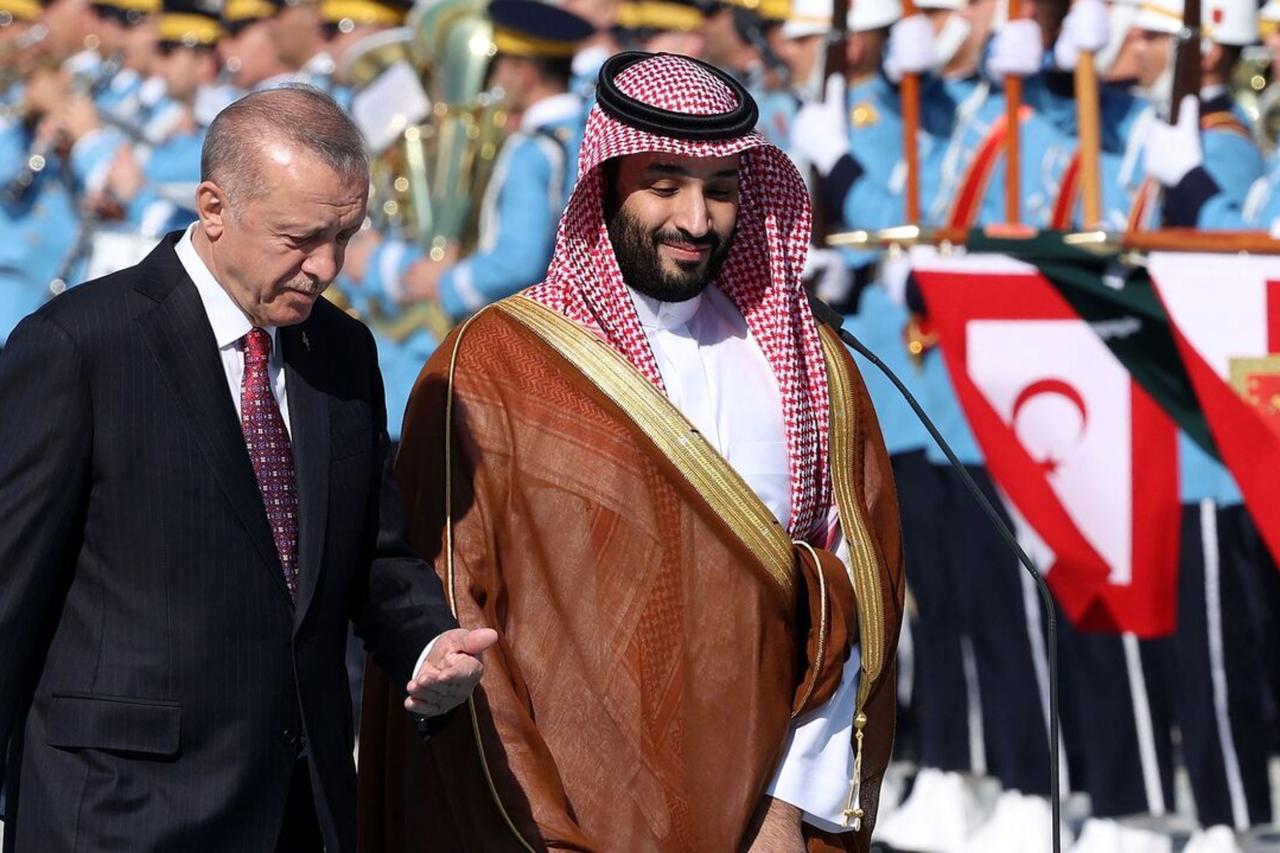
Saudi Arabia has stepped into a visible role as an active mediator in regional diplomacy following Oct. 7.
In the wake of the Ba'ath regime’s collapse in Syria on Dec. 8, 2024, Riyadh has pursued a policy aimed at responsible engagement in the country’s reconstruction. While there were earlier attempts to draw Saudi Arabia into the Abraham Accords before Oct. 7, the Kingdom made clear that it would only recognize Israel once a Palestinian state was established and a two-state solution secured. Saudi foreign policy has remained consistent on this point. Even now, Riyadh continues to reaffirm its position: recognition of Israel is conditioned on the creation of a Palestinian state.
With Vision 2030, Saudi Arabia has positioned itself as the rising power of the Gulf and the wider region. This has pushed many countries to seek a share in the new wave of investments flowing into the Kingdom. In Syria, Riyadh’s active intervention has created a decisive turning point for regional reconciliation, contrasting with the entrenched divisions of the Arab Spring era.
In the aftermath of Oct. 7 and Dec. 8, however, what stands out is a greater synchronization among regional actors. Notably, the Gaza contact group formed under Saudi leadership within the Organization of Islamic Cooperation (OIC) has emerged as a central platform.
With Trump’s election, efforts to expand the Abraham Accords returned to the forefront of Middle East peace initiatives. Washington’s goal has been to shift some of the regional burden onto key actors while reducing the likelihood of conflict. Central to this strategy is the promotion of dialogue between Israel and the Arab states.
For Saudi Arabia, however, Israel’s conduct toward Gaza—and toward Palestinians more broadly—since Oct. 7 has gone far beyond what the Kingdom can credibly defend before its own public. As a result, Riyadh has issued sharp condemnations of Israel from time to time.
Relations between Türkiye and Saudi Arabia had been strained during the Arab Spring due to regional rivalry. After 2020, ties between the two countries began to advance in all areas. In the defense industry, conflict resolution efforts, and economic investment, relations have gained momentum. Crown Prince Mohammed bin Salman's visit to Türkiye marked the beginning of a new era. The most important test of this period can be seen in both countries’ support for President Ahmad al-Sharaa in Syria.
New opportunities now exist for deepening Türkiye–Saudi Arabia relations. Under Trump’s presidency, regional synchronization increased, and areas of cooperation began to multiply. Saudi Arabia, alongside Trump, has been calculating its steps in a post-U.S. Middle East.
The main limitation in its ties with Türkiye lies in the perception of a non-Arab country taking a leading role in Arab dossiers. For this reason, Saudi Arabia prefers Türkiye to hold a defined place within the regional strategy, which it frames as shared decision-making on regional matters.
It is possible to say that Türkiye’s relations with the Gulf, and especially with Saudi Arabia, have reached a point of stability. To advance this process further, complementarities in strategic sectors can be emphasized. Türkiye’s strengths can be combined with the resources and capacities of which Saudi Arabia is well-resourced.
For this to happen, however, Türkiye needs to develop a new policy framework toward Saudi Arabia, as today’s Saudi Arabia is no longer the Saudi Arabia of the past.
Türkiye and Saudi Arabia have intensified their defense industry cooperation since 2023. The most significant development in this process was the agreement signed in July 2023 for the export of Bayraktar Akinci UCAVs to Saudi Arabia, marking Baykar’s largest export contract to date. Saudi Arabia has also expressed interest in producing unmanned aerial vehicles domestically, in line with its Vision 2030 strategy aimed at strengthening the Kingdom’s non-oil economy.
In addition, the Saudi Arabian Military Industries (SAMI) has signed agreements with Turkish defense companies in the fields of land systems, electronics, and space technologies, focusing on technology transfer and joint production. Within this framework, SAMI reached understandings with Nurol Makina, FNSS, and Aselsan for the local production of armored vehicles and land systems in Saudi Arabia.
Reports have also indicated Saudi interest in Türkiye's KAAN fighter jet, with speculation about a potential order of up to 100 aircraft, though this has yet to be officially confirmed. Furthermore, Aselsan has reportedly been considered as a potential provider of specialized air defense solutions for Saudi Arabia’s NEOM project.
At a time when a regional security architecture is needed in the Middle East, cooperation between Türkiye and Saudi Arabia will play an important role in preventing instability. As the areas of cooperation between the two countries expand, points of disagreement are steadily losing significance.